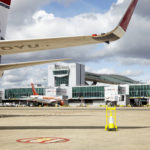Rolls-Royce has announced a pre-tax loss of £5.4bn for the first half of this year after the slump in air travel caused by COVID-19.
Rolls-Royce is currently undergoing the biggest restructure in its history in line with current market conditions. The engine manufacturer will reduce the number of sites it has worldwide from 11 to six and slashing its global workforce by one fifth. The company announced yesterday that is will close factories in Nottinghamshire and Lancashire, as part of plans to cut 3,000 jobs across the UK. Wide-body engine assembly and testing, which is currently carried out at three global sites, will be consolidated at its main site in Derby.
Rolls-Royce chief executive Warren East said: “We ended 2019 with good operational and financial momentum. However, the COVID-19 pandemic has significantly affected our 2020 performance, with an unprecedented impact on the civil aviation sector with flights grounded across the world.”
Rapid response to increase liquidity
“We have responded rapidly to increase our liquidity, with £6.1bn at the end of H1 and a further £2.0bn term loan agreed in H2, to help weather the continued uncertainty around the timing and shape of the recovery in the civil aviation sector. We have made significant progress with our restructuring, which includes the largest reorganisation of our Civil Aerospace business in our history. This restructuring has caused us to take difficult decisions resulting in an unfortunate but necessary reduction in roles. These actions will significantly reduce our cost base, which combined with recovery in Power Systems and continued resilience in Defence, will help us to deliver significantly improved returns as the world recovers from the pandemic.”
Long term view to rebuilding balance sheet
East added that Rolls-Royce was also taking a longer term view on rebuilding the balance sheet: “We have identified a number of potential disposals that are expected to generate proceeds of more than £2bn, including ITP Aero and a number of other assets. Furthermore, in light of ongoing uncertainty in the civil aviation sector, we are continuing to assess additional options to strengthen our balance sheet to enable us to emerge from the pandemic well placed to capitalise on the long-term opportunities in all our markets.”
East told the BBC’s Today programme that 4,500 people worldwide had left the company. He added that Rolls-Royce had originally expected to deliver up to 500 jet engines this year, but would now manage only half that.

